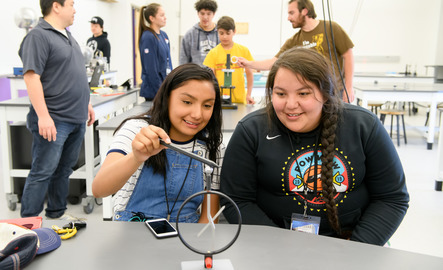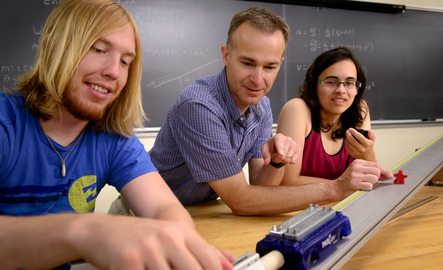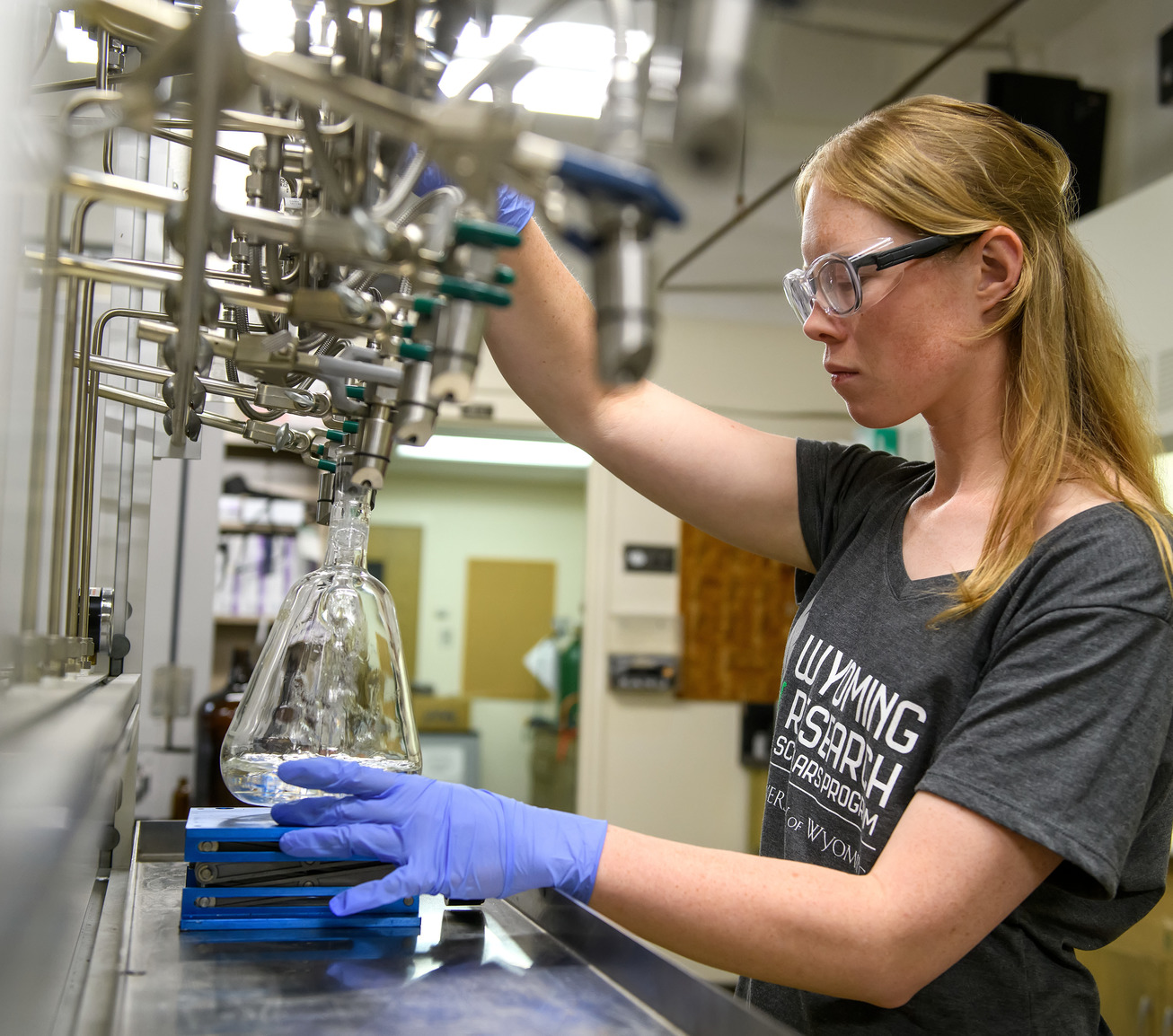About the Undergraduate Physics Program
Should you choose the B.A. or B.S.? It depends on your interests and career goals.
The Bachelor of Arts (B.A.) in Physics degree program provides a pathway for more students to major in physics, as a second
major to physical chemistry, mathematics and engineering, for example.
The Bachelor of Science (B.S.) in Physics program is intended for students who will pursue a career or a graduate degree in
physics or related fields.
Our research efforts are broadly focused on condensed matter physics, materials science,
and astronomy. Our physics faculty and students conduct interdisciplinary, collaborative and hands-on research in multiple
cutting-edge laboratories.

Undergraduate students will develop the following capabilities during their studies in the physics department:
- Conceptual and analytical understanding of the 4 major areas of physics: Mechanics, Electricity & Magnetism, Quantum Mechanics and Statistical Physics
- Understanding of scientific reasoning, i.e., the roles of theory, hypothesis and experiment in the scientific method
- Demonstration of a working knowledge of laboratory & programming skills as they relate to gathering data and comparing data to the predictions of theoretical models
- Ability to clearly communicate the results of scientific analysis in written and oral form

Physics students are encouraged to explore scholarships to help fund their education. Check out available scholarships, and don't hesitate to contact our department with questions!

Physics Minor
Interested in physics but don't want to make it your primary undergraduate degree? Consider adding a physics minor to your schooling.
Learn MoreWhat Can You Do With a Physics Degree?
Students earning physics degrees are well-trained problem solvers who enjoy diverse challenging careers, and who earn salaries competitive with fields like engineering. Students can also earn a secondary teaching credential to teach high school physics, an occupation in high demand across the country.
- Data analyst
- Research assistant
- Engineer or technician
- Software developer
- Science or technical writer
- High school physics teacher
- Finance or actuarial analyst
- Lab technician
- Graduate student in physics, engineering, data science, education or medicine
Here are just a few of the places where University of Wyoming physics alumni are working:
- ITT Tech
- Biomedicine
- U.S. Marine Corps
- Bill Barrett Corp., Denver
- Lowell Observatory
- U.S. Air Force
- Computer software development
- Graduate program across the U.S.
Here are just some of the fields you could work in with a degree in physics:
- Private Sector STEM
- Civilian Government & National Labs
- Active Military
- High School Education
- College or University Education
- University of Wyoming
- Penn State University
- Florida State University
- Montana State University
- George Mason University
- The George Washington University
- Virginia Tech
- Georgia State University
- Purdue University
- Boise State U
- University of Houston
- Rice University
- University Bonn Germany
- ETH Zurich
Astrophysics in Action at UW
Meet Professor Mike Brotherton, an internationally recognized astrophysicist and science fiction author in the University of Wyoming’s Department of Physics and Astronomy. He specializes in the study of supermassive black holes and active galactic nuclei, using powerful telescopes around the world and across the electromagnetic spectrum. A passionate science communicator, he also founded the NASA-funded Launch Pad Astronomy Workshop for Writers, which brings award-winning authors to UW each summer to help inspire accurate and engaging science in fiction. Through both his research and outreach, Dr. Brotherton brings the universe to life for students and readers alike.
"Undergraduate research is so accessible at UW because the student-to-faculty ratio is incredible. There are so many opportunities to grow and contribute to the Physics & Astronomy community at the University of Wyoming—take advantage of them."
- UW Physics & Astronomy Graduate


